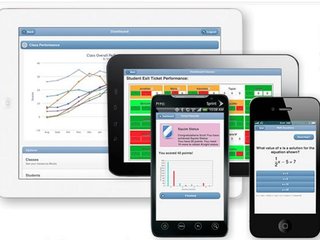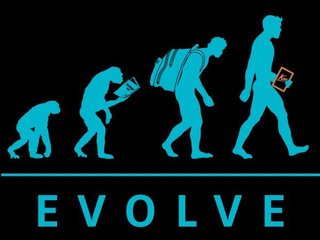
Has the Web created a generation of lazy students?
As research falls more on Google's shoulders, teachers weigh in on digital technology and education

The Internet has revolutionized information gathering. Twenty years ago, if a high school senior wanted information on possible colleges, she had to phone in a request for an information packet to be mailed to her. A packet!
The Internet has completely upended the way we seek information—and most educators agree that the impact has been largely positive. The downside: there’s more info on the Web than our puny human brains can actually process, making it easy to get side-tracked, distracted, and confused.
Case-in-point: while researching this story, I realized I was also reading articles on Business Insider, Jezebel, and LearnVest while simultaneously shopping for baby clothes and glass storage containers because I’ve developed a phobia of all things plastic and the carcinogens they leach into food and water. Jesus. No wonder it takes me all damn day to get anything done.
But how is the Web impacting education? The Pew Research and American Life Project released a study Thursday that took a deep dive into that very question. Survey results reveal that 77% of all teachers surveyed believe that digital technology has had a largely positive impact on education, and fully 99% of teachers believe that the Internet gives students a much wider access to research material. But 76% of teachers also agree that search engines have conditioned students to expect to find information quickly and easily.
Students today are a totally different animal from the students of yesteryear. Researching a topic no longer involves flipping through the card catalog at the library or scouring the index of a book to find a keyword. All of that can now be done through a quick Google search.
This obviously has negative consequences. For one thing, students who get the bulk of their information through Googling aren’t getting their information holistically and in context, but in isolated fragments. Studies have shown that students who do their research this way—by isolating specific facts or keywords on a page without reading much of the contextual information—don’t learn as efficiently and thus don’t perform as well academically as students who spend more time reading contextual information.
But on top of that, students who Google their way through a class are getting bombarded with information and sources that may not be reliable or accurate. Indeed, fully 60% of teachers surveyed believe that today’s digital technology actually makes it harder for students to find credible sources of information. Furthermore, 83% believe that the Internet threatens to overwhelm students with information.
Then again, there’s another side to this.
Taylor Garland, an algebra teacher with Leadership Public Schools in the Bay Area, teaches high school students who typically come to him several years below grade level.
“I've worked with many students who have no online literacy and seen the significant disadvantage that they face, particularly when considering success in higher education. Immediate access to an overwhelmingly vast amount of information is an advantage, not a disadvantage, for these students,” said Garland, who helped develop the student response system ExitTicket. He added: “I absolutely agree that it is the interpreting, discovering, and analyzing this information that needs to be taught explicitly—if not by parents, then by teachers.”
Teaching students how to navigate vast silos of information like those found via Google is easier said than done. As Garland pointed out to me, he works with students who are largely low-income and performing below grade level, so digital literacy isn’t the first item on the agenda. Teachers at Leadership Public Schools are busy trying to get their students up to grade level on the basics, like math and reading.
Nevertheless, Dr. Louise Waters, CEO and Superintendent of Leadership Public Schools, agrees that this is a pain point. “Long range, we need to teach our students digital responsibility,” she said.

Indeed, in the Pew survey, fully 91% of teachers agreed that digital literacy needs to be incorporated into every school’s curriculum. Most of the teachers in the survey said that they encourage their students to utilize digital resources for research, but many believe their students need to develop certain basic research skills, like exercising patience and determination in seeking out hard-to-find information, and spotting bias in online content.
“Technology has a complex impact on teens’ research habits,” said Kristen Purcell, Associate Director for Research at the Pew Internet Project and the report’s main author. “The internet and digital tools like search engines and cell phones have given students instant access to more information than ever before, which most teachers see as a benefit. Yet, teachers also feel many students lack the most important skills they need to navigate this new information environment, specifically the ability to judge the quality of information they find online and identify information relevant to the task at hand.”
There’s also the basic issue of distractibility. Fully 87% of teachers surveyed believe that digital technology has created a generation of students that is easily distracted.
“This is an environment where it’s increasingly easy to ‘amuse yourself to death’…to take shortcuts to information rather than to critically assess it, to fall victim to bad information, to live in an echo chamber and not get all the information that’s relevant and useful, and to stay ‘jacked in’ to information and networks in a stressful and diverting way,” said Lee Rainie, Director of the Pew Internet Project, in an earlier interview.
The question of whether we should be teaching students digital responsibility is not what we should be asking ourselves, but rather how and when.
Image source: guim.co.uk
Related News


Resetting Education: tapping into the classroom

Resetting Education: How tech is changing the paradigm

